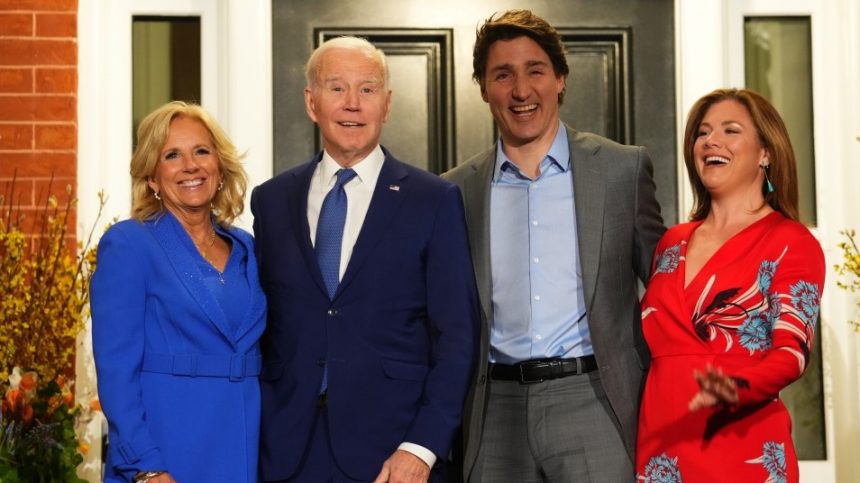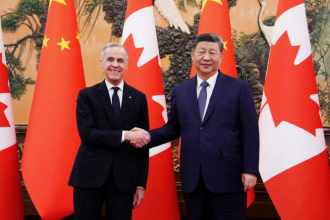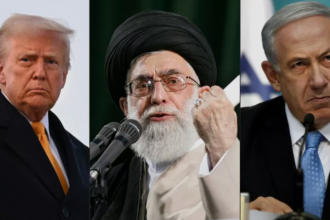March 23, 2023, Ottawa: U.S. President Joe Biden arrived Thursday evening in Ottawa for a whirlwind 27-hour visit to focus on the friendly and thorny aspects of the Canada-U.S. relationship, including protectionism and migration both sides of the border.
The welcoming party for the president and first lady Jill Biden included Finance Minister Chrystia Freeland, Foreign Affairs Minister Melanie Joly, the American ambassador to Canada, David Cohen, and Canada’s envoy in the U.S., Kirsten Hillman. Biden began his time in Ottawa by meeting Gov. Gen Mary Simon. The U.S. president and the first lady were then greeted by Prime Minister Justin Trudeau and his wife, Sophie Gregoire Trudeau, at their home at Rideau Cottage.
“This will be the first true, in-person bilateral meeting between the two leaders in Canada since 2009,” said White House National Security Council spokesman John Kirby. Biden is hell-bent on restoring blue-collar American manufacturing to its former glory, considers free trade a dirty word and wants Canada to wade voluntarily into a failed, gang-ravaged state that’s a quagmire waiting to happen.
To be sure, Biden is no Donald Trump. But he doesn’t always make it obvious. The first year of his term focused on rebuilding Canada-U.S. relations following Trump’s divisive term in office. The second focused on meeting obligations, “including prioritizing orderly and safe migration through regular pathways,” Kirby said. “Now, heading into the third, this visit is about taking stock of what we’ve done, where we are and what we need to prioritize for the future.”
While he’s far less undiplomatic and publicly combative than his both-barrels predecessor, Biden’s first two years in the Oval Office produced more than enough political headaches for Trudeau. Friday’s meetings are expected to offer at least one remedy.
A Biden administration official said the two countries would agree to expand the 2004 treaty governing how they handle asylum seekers who cross their shared border. The U.S. will agree to extend the treaty, known as the Safe Third Country Agreement, to apply all along the world’s largest international border. It currently only applies at official entry points, so it’s often blamed for fuelling a recent surge in would-be refugees at places like Roxham Road in Quebec.
In exchange, Canada will agree to welcome an additional 15,000 migrants from across the Western Hemisphere over the next year on a humanitarian basis, said the official, who spoke on condition of anonymity. The agreement is the culmination of discussions between Trudeau and Biden at the Summit of the Americas in Los Angeles last June, a migration-heavy meeting where Canada agreed to admit just 4,000 more migrants by 2028.







